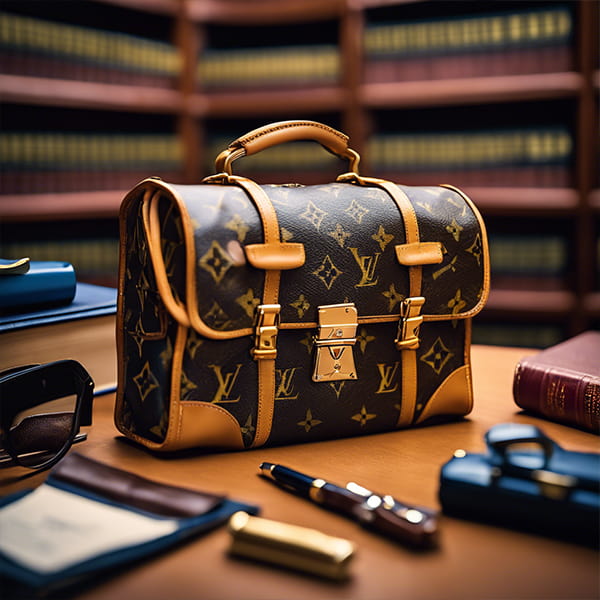Exploring the relationship between education and affluence is a multifaceted topic that warrants a nuanced examination. In today’s world, where social media and influencer culture reign supreme, the allure of luxury brands among students has become increasingly prevalent, blurring the lines between aspiration and obsession. For those seeking assistance with essay writing, reputable services like essay writing service UK can provide valuable guidance on navigating this complex subject matter.
Let’s start by understanding the appeal of luxury brands for students. These brands represent more than just material possessions; they symbolize prestige, exclusivity, and a sense of belonging to an elite group. For many students, owning a luxury item is a rite of passage, a validation of their social status, and a means to showcase their personal style and taste. However, this pursuit raises questions about the correlation between education and affluence, and whether the obsession with luxury brands is a healthy or dangerous trend that could lead to financial strain and misplaced priorities. When researching and analyzing this topic, students may find it beneficial to consult best research paper services for comprehensive support and resources.


Luxury brands often employ powerful marketing strategies that tap into the aspirational desires of young individuals. Through carefully crafted advertising campaigns and influencer partnerships, these brands create an aura of exclusivity and desirability that can be challenging to resist, especially for impressionable students. The rise of social media has further amplified the visibility of luxury brands, fueling a culture of conspicuous consumption. Students are bombarded with images of their peers flaunting designer labels, creating a sense of pressure and envy that can drive them to seek out similar possessions.
While ownership of luxury items can provide a temporary sense of satisfaction and social acceptance, it’s crucial for students to maintain a balanced perspective. Education should be the primary focus, and the pursuit of knowledge and personal growth should take precedence over material possessions.
- Prioritizing education: Students should understand that their academic achievements and intellectual development will have a far more significant impact on their future than the brands they wear or the accessories they carry.
- Financial responsibility: It’s essential for students to practice financial prudence and avoid accumulating debt or compromising their long-term financial stability in the pursuit of luxury goods.
Furthermore, it’s important to recognize that the obsession with luxury brands among students can stem from deeper psychological and societal factors. For some, it may be a way to compensate for insecurities or a lack of self-confidence, while for others, it may be a means of fitting in and conforming to perceived social norms.
- Self-esteem and confidence: Students should cultivate a strong sense of self-worth and confidence that is not dependent on external validation from luxury brands.
- Peer pressure and conformity: It’s essential to resist the temptation to conform to societal pressures and instead embrace individuality and authenticity.
On the other hand, it’s important to acknowledge that some luxury brands have embraced sustainability and ethical practices, aligning themselves with values that resonate with socially conscious students. In these cases, the decision to purchase from such brands can be seen as a conscious choice to support responsible business practices.
- Sustainable luxury: Some luxury brands have embraced eco-friendly materials and production methods, appealing to environmentally conscious students.
- Ethical sourcing: Brands that prioritize fair labor practices and responsible sourcing may resonate with students who value social responsibility.
Additionally, it’s worth noting that luxury brands often represent excellence in craftsmanship, design, and quality, which can be appreciated from an artistic and cultural perspective. For students interested in fields such as fashion, design, or business, studying the strategies and marketing techniques employed by these brands can provide valuable insights and learning opportunities.
- Appreciation of craftsmanship: Luxury brands are often renowned for their attention to detail and exceptional craftsmanship, which can be appreciated from an artistic and cultural standpoint.
- Industry insights: For students pursuing careers in fashion, design, or business, analyzing the marketing and branding strategies of luxury brands can provide invaluable knowledge and inspiration.
Ultimately, the relationship between luxury brands and students is a complex one that requires careful navigation. While the allure of luxury goods is undeniable, it’s crucial for students to strike a balance between indulging in the occasional treat and maintaining a strong focus on their educational goals and financial well-being. By cultivating a mindset of moderation, prioritizing personal growth, and making informed choices, students can navigate the world of luxury brands without compromising their values or jeopardizing their long-term aspirations.
Furthermore, educational institutions and mentors play a crucial role in guiding students through this landscape. By fostering critical thinking, financial literacy, and a well-rounded understanding of consumerism and its impacts, students can develop the necessary tools to make wise decisions that align with their values and long-term goals.
In conclusion, the relationship between luxury brands and students is a multifaceted one that requires careful consideration and self-awareness. By prioritizing education, cultivating self-confidence, and making informed choices, students can navigate the allure of luxury brands while maintaining a balanced perspective and staying true to their aspirations.
















